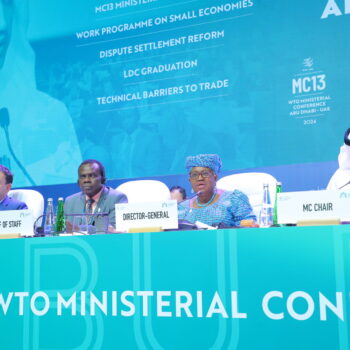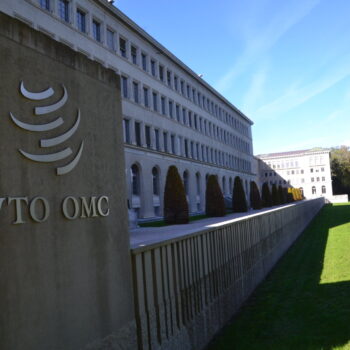Eurelectric, the association defending the interests of the European electricity industry, presents itself as a defender of the European consumer and the internal energy market. And yet many of its recommendations serve neither, argues Manon Dufour.
Eurelectric officially supports key Energy Union goals such as competitive markets and ambitious climate policies, but its policy recommendations tell a different story. In particular, its response to the Clean Energy for All Europeans package (the “Winter Package”), which was proposed by the European Commission late last year and is now being debated by the European Parliament and the European Council, goes against the grain of competition and decarbonisation.
The vision that emerges from reading Eurelectric’s various policy documents is one in which consumers are charged for reducing their electricity demand, dying coal plants are bailed out by taxpayers and innovative community projects are rushed into a complex and inefficient market.
Europe’s electricity sector is a fast-changing business. Passive consumers of yesterday’s electricity market (from individual households to local governments and large businesses) are becoming active participants in the new energy economy. It’s to accommodate and nourish this fundamental shift that the European Commission has proposed an upgrade to electricity market rules as part of the “clean energy package”, on which Eurelectric has recently commented – see for example ‘European Commission’s legislative proposal on common rules for the internal market in electricity’ and ‘European Commission’s proposal for a Regulation on the internal market for electricity’.
The following three recommendations illustrate Eurelectric’s selective commitment to market principles.
1. A tax on demand-side innovation and energy efficiency
Eurelectric writes that because electricity suppliers buy energy ahead of time, they lose revenue when consumers decide to reduce their consumption and/or provide flexibility to the system – and that, therefore, suppliers should be compensated (“The energy that is not consumed by the end-customer but diverted by the third-party aggregator is still sourced by the supplier of the activated customer. Therefore, this electricity has to be paid for”).
This is tantamount to saying they should be rewarded for failure, a failure to accurately account for important new innovations aimed at helping consumers and taxpayers save money. If such disincentives to efficiency were agreed to, what would stop suppliers systematically over-procuring energy consumers don’t want or need?
In the name of creating a “level-playing field”, Eurelectric calls for citizen and community-owned renewables to be treated as though they were large utility-scale projects.
Over time, one would expect suppliers to become better at anticipating on reductions in energy sales and adjust their energy procurement strategies accordingly. In fact, it is likely that suppliers will find it in their interest to develop their own demand response services for consumers. On the other hand, having to compensate suppliers would harm aggregators whose business model relies on helping consumers save money from energy savings.
Clearly then, “compensation payments” must be avoided in order to have a chance of developing demand-side flexibility across Europe, as independent think tank Regulatory Assistance Project (RAP) also argues in their paper ‘Benefiting Customers While Compensating Suppliers: Getting Supplier Compensation Right’.
2. An extra burden on fledgling community energy schemes
In the name of creating a “level-playing field”, Eurelectric calls for citizen and community-owned renewables to be treated as though they were large utility-scale projects (“Any kind of positive discrimination at the expense of other parties must be avoided”).
But exposing (for example) village-scale projects to the same complex regulations big utilities are subject to would choke a promising market that is only just emerging, before the right new products and services can be developed.
The idea of a “level playing field” is central to the idea of free and fair competitive markets. It means that every actor – no matter its size or current power in the market – has a fair and equal chance of succeeding if they have the right product or service. This requires fair treatment rather than identical treatment.
While large-scale renewables are getting ready to participate in electricity markets unsubsidised and on the same basis as other sources of generation, it is too soon for small-scale renewables. In most cases, their full market participation would require facilitation by third parties, such as ESCOs (energy service companies) or aggregators, which themselves rely on hedging products to minimise their exposure to changes in weather, changes in electricity prices, etc. The problem is that these services and products are still too scarce for individuals or communities to be able to use them.
The good news here is that, if implemented, the Commission’s legislative proposals would certainly incentivise their growth – and the growth of community-level energy projects in the process.
3. Money for aging power plants, with “no strings attached”
Thirdly, Eurelectric calls for capacity payments but rejects the safeguards proposed to minimise their likely impacts on competition, energy bills and the environment. If implemented, these recommendations would not only prolong the use of subsidies, even to aging and highly-polluting coal plants, but would also disincentivise the clean energy investments progressive companies are already making, e.g.in offshore wind, and delay the creation of competitive wholesale electricity markets to the detriment of European citizens and businesses.
Although a highly contentious topic, there is broad agreement in EU policy circles on the fact that Member States should have the right to revert to capacity payments as a last resort to guarantee security of supply, but also that these mechanisms present serious threats to the development of competitive, low carbon and integrated markets.
To all of this, Eurelectric says ‘no thanks’, revealing itself as a roadblock to reform.
The Commission’s legislative proposals offer a framework to minimise these risks through consistent and transparent justification criteria for the use of capacity mechanisms, ensuring that they are open to all available resources, and that they are consistent with decarbonisation policies by, for example, preventing subsidies to coal. To all of this, Eurelectric says ‘no thanks’, revealing itself as a roadblock to reform.
The problem is that prolonging subsidies to old plants would also require the extension of subsidies for new projects. As recent auctions for offshore wind in Germany have shown, energy companies like DONG or EnBW (both members of Eurelectric) are ready to build large-scale renewable generation without subsidy by 2025. But this remains dependent on the ability to restore effective wholesale energy pricing, notably by putting an end to handouts to the old and unprofitable coal fleet.
So Eurelectric has a choice. Either it supports the market principles underpinning the Clean Energy for All Europeans package. Or it defends unfair privilege for current incumbents, even though many of those very incumbents are themselves ready and willing to make the transition. But in that case, it should not claim to be a supporter of fair competition and decarbonisation.


